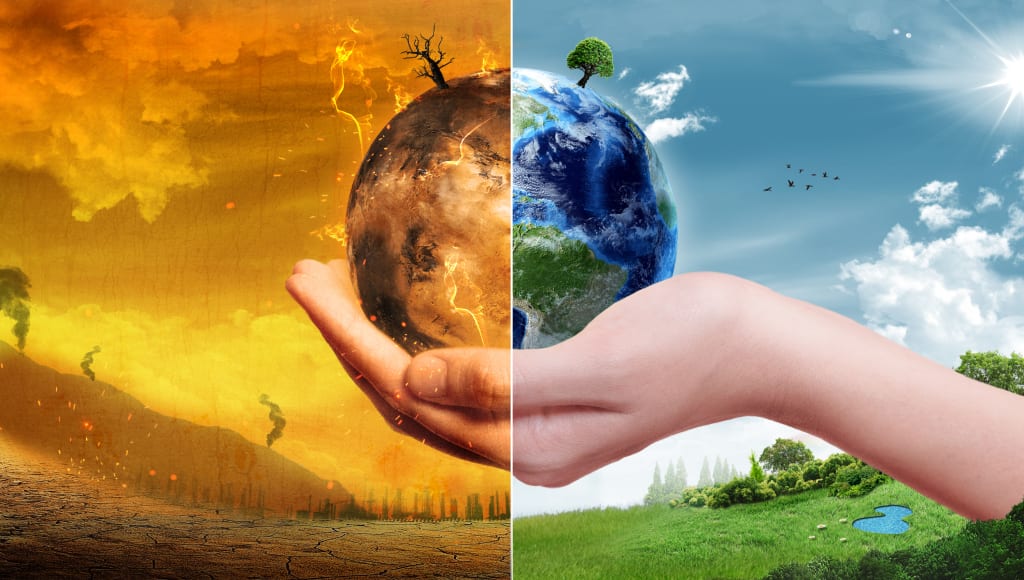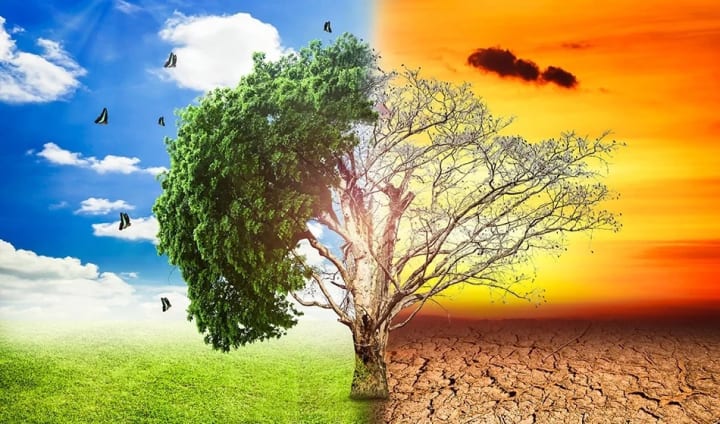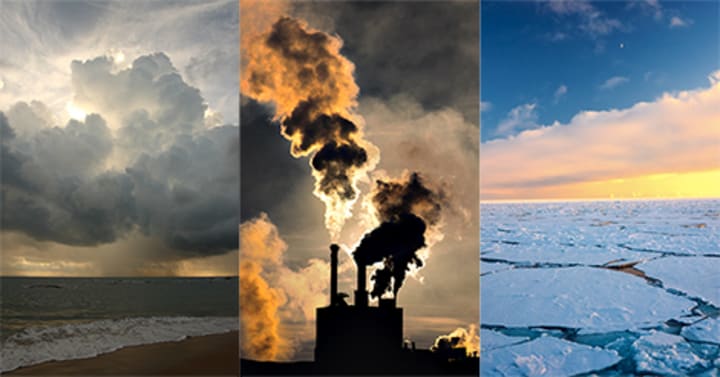GLOBAL WARMING
Impact And Conclusion Of Global Warming

Global warming is one of the most pressing environmental issues facing the world today. It refers to the long-term rise in the average temperature of the Earth's surface and its oceans. This increase in temperature is largely attributed to human activities, particularly the emission of greenhouse gases into the atmosphere, which trap heat from the sun and cause the planet to warm.
The consequences of global warming are far-reaching and can have severe impacts on the environment, human health, and global economy. Rising temperatures can cause more frequent and intense heatwaves, leading to heat exhaustion and other health problems. Higher temperatures can also lead to sea-level rise and increased frequency of natural disasters such as hurricanes, floods, and droughts, putting coastal communities and agriculture at risk.
Global warming also has significant impacts on wildlife, altering ecosystems and leading to species extinction. Warming oceans are affecting marine life, causing harm to fish populations and coral reefs, and reducing the productivity of fisheries. As temperatures rise, insects, disease, and wildfires are spreading to new areas, causing further damage to the environment and wildlife.
In addition to its environmental impacts, global warming also poses a significant threat to the global economy. The costs of natural disasters and property damage are increasing, and the agricultural sector is also facing major challenges from changing weather patterns and increased pest and disease outbreaks. The tourism industry is also affected, as rising temperatures and sea levels alter the quality of beaches, ski resorts, and other popular tourist destinations.

To address global warming, it is important to reduce greenhouse gas emissions and transition to a low-carbon economy. This can be done by implementing policies and programs that promote clean energy, energy efficiency, and sustainable transportation. Governments, businesses, and individuals can also make changes in their daily lives, such as reducing energy consumption, using alternative forms of transportation, and reducing waste.
One of the most effective ways to reduce greenhouse gas emissions is to transition to renewable energy sources, such as wind and solar power. Renewable energy is not only more sustainable and environmentally friendly, but also more cost-effective in the long term. Additionally, governments can implement carbon pricing policies, such as a carbon tax, to incentivize businesses and individuals to reduce emissions.
Another important strategy to address global warming is to protect and restore forests, wetlands, and other natural habitats. These ecosystems play a critical role in removing carbon dioxide from the atmosphere, and their protection and restoration can help to slow the pace of global warming.
Finally, international cooperation is crucial in addressing global warming. The Paris Agreement, a global treaty signed by nearly 200 countries, aims to limit global warming to well below 2°C above pre-industrial levels and pursue efforts to limit it to 1.5°C. The agreement encourages countries to transition to a low-carbon economy, strengthen resilience, and enhance adaptive capacity to the impacts of climate change.
In conclusion, global warming is a major environmental issue that requires immediate action. The consequences of global warming are far-reaching and can have severe impacts on the environment, human health, and global economy. Addressing global warming requires reducing greenhouse gas emissions, transitioning to a low-carbon economy, protecting and restoring ecosystems, and international cooperation. The time to act is now, and each individual, business, and government has a role to play in addressing this critical issue. Global Warming is a complex and pressing issue that requires immediate action. It is a human-made problem that requires a human-made solution, and everyone has a role to play in mitigating its effects. By taking steps to reduce emissions, transition to clean energy, and promote sustainable practices, we can ensure a better future for ourselves and generations to come.







Comments
There are no comments for this story
Be the first to respond and start the conversation.